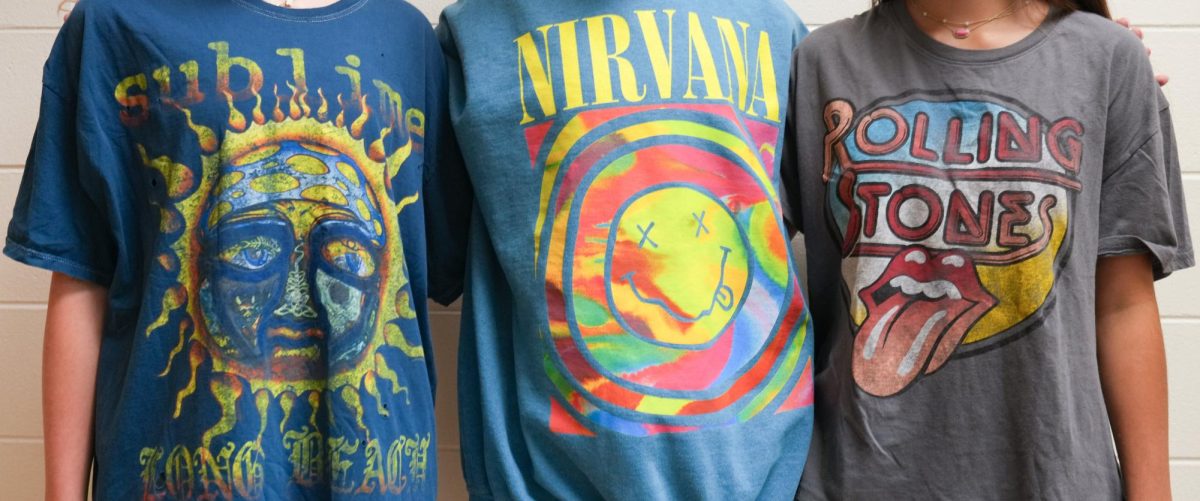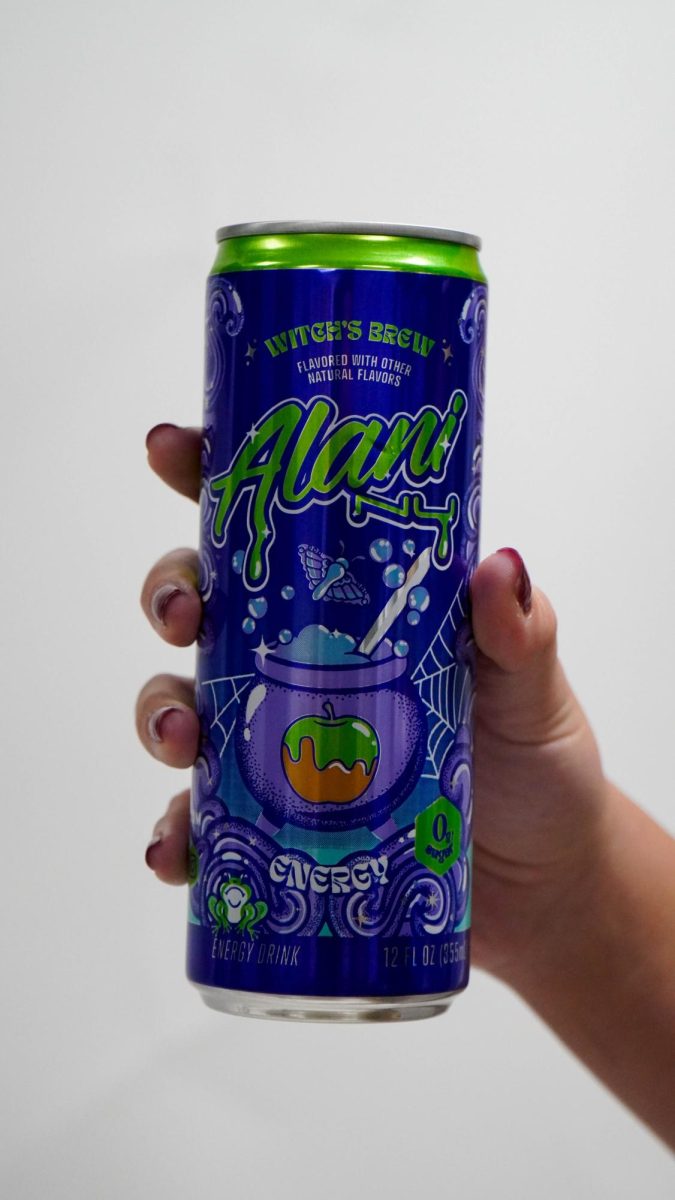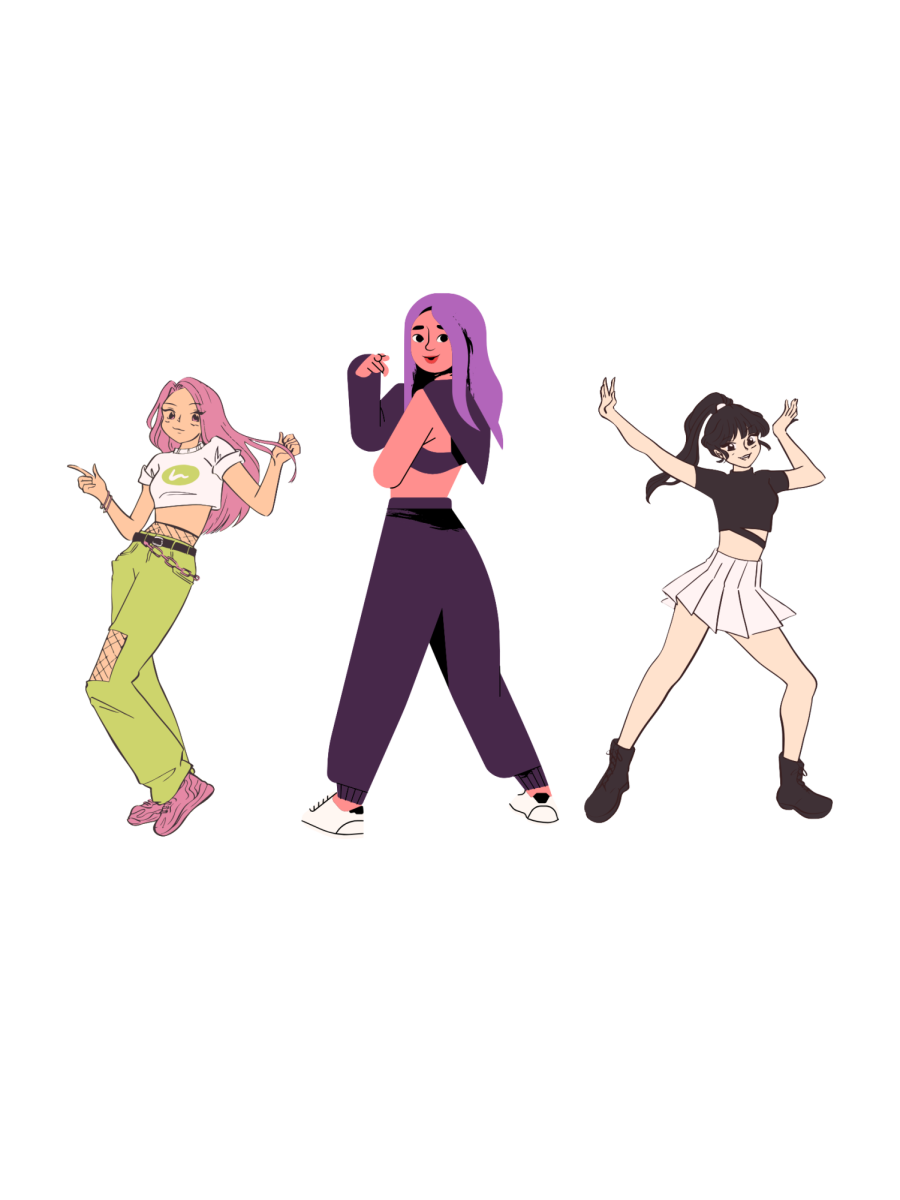Teens, including those on the Trinity Prep campus, are flocking to vintage band shirts influenced by celebrities like Kourtney Kardashian, who have been spotted sporting similar styles. This trend reflects students’ desire for self-expression and individuality, transforming these shirts into more than just fashion statements but symbols of personal identity and musical passion.
Within the ever-changing culture of Trinity’s campus, a new fashion trend is resonating with students: Vintage band shirts. These iconic shirts are decorated with the logos and imagery of past and present music artists and bands.
The craze for band shirts started in the 1950s when Elvis Presley created a shirt to advertise four of his new singles. This was followed by the Beatles in the next decade, then various rock bands thereafter, including Pink Floyd and AC/DC, who, for the first time, were able to make significant profits from merch sales. In the ’90s, Nirvana’s smiley face shirts surged in popularity, reflecting the punk and rebellion of the era, and started swooning the masses.
The resurgence of vintage-style band shirts within our school community is not just a fashion trend but a cultural phenomenon. This is partly due to the influence of style icons like Rihanna and Kourtney Kardashian, who have been spotted wearing similar styles of shirts, thereby making them more appealing and popular among students. The desire to express individuality through one’s music taste also plays a significant role in this trend.
“It’s just an interesting way to express your style and your taste for music. I don’t think they’re necessarily being bought for the band; it’s more for the style,” sophomore and Fashion Club co-president Maiori Butz said.
While some students wear vintage T-shirts to follow a trend, others embrace them to express their individuality and musical interests.
“I think people are doing it because vintage is really in right now,” sophomore and Fashion Club Co-President Gracie Asher said. “It’s also a way for people to express their music taste through fashion.”
The widespread adoption of band t-shirts extends to subcultures typically resistant to mainstream fashion influences, showcasing the pervasive impact of music-inspired fashion on diverse fashion communities.
“In a lot of alt styles, like Punk specifically, you try to avoid fast fashion; these are the rules that go with being punk or being alt in general, but it’s pretty mainstream to wear a band T-shirt,” Kaitlyn Wilcke, an alternative music fan, said. “If you like a band, you want to get stuff from them because the merchandise is pretty big.”
It’s not merely about fashion; it’s about self-expression, exploration of musical interests, and an adherence to counter-cultural views and values.
“I think any vintage or contemporary rock’n’roll T-shirts allow a person to express their musical interests and perhaps make other statements about being cool or associations they have,” Steven Garnett, a former band t-shirt lover, said.
The resurgence of these shirts not only evokes nostalgia but also speaks to a deep-seated desire to form personal bonds with music. These beloved garments transcend fashion, instead becoming symbols of individuality and musical identity.
As students embrace these shirts, they become symbols of identity and belonging within our diverse school culture. Beyond mere fashion statements, they embody personal stories, cultural movements, and the spirit of rebellion. With each wearer proudly donning their favorite band’s logo, they pay homage to music legends and carve out their place in our school’s vibrant tapestry.















